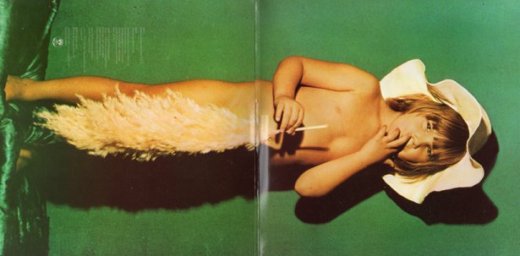 Edgar Willmar Froese (6 June 1944 – 20 January 2015) was a German musical artist and electronic music pioneer, best known for founding the electronic music group Tangerine Dream in 1967. Froese was the only continuous member of the group until his death. Although his solo and group recordings prior to 2003 name him as “Edgar Froese”, his later solo albums bear the name “Edgar W. Froese”.
Edgar Willmar Froese (6 June 1944 – 20 January 2015) was a German musical artist and electronic music pioneer, best known for founding the electronic music group Tangerine Dream in 1967. Froese was the only continuous member of the group until his death. Although his solo and group recordings prior to 2003 name him as “Edgar Froese”, his later solo albums bear the name “Edgar W. Froese”.
Froese was born in Tilsit, East Prussia (now Sovetsk, Russia), on D-Day during World War II; members of his family, including his father, had been killed by the Nazis and after the war his mother and surviving family settled in Berlin. He took piano lessons from the age of 12, and started playing guitar at 15. After showing an early aptitude for art, Froese enrolled at the Academy of the Arts in Berlin to study painting and sculpture.

One of his most lucrative jobs was to design advertising posters for the Berlin buses. He started an evening degree in psychology and philosophy and received his doctorate on Kant’s categorical imperative.[citation needed] Since his interpretation was not in accordance with the academic way of thinking, he left the college with the remark: “The dust of the universities is like a shroud over the truth.”
In 1965, he formed a band called The Ones, who played psychedelic rock, and some rock R&B standards. While playing in Spain, The Ones were invited to perform at Salvador Dalí’s villa in Cadaqués. Froese’s encounter with Dalí was highly influential, inspiring him to pursue more experimental directions with his music. The Ones disbanded in 1967, having released only one single “Lady Greengrass” (b/w “Love of Mine”) on Star-Club Records.[4] After returning to Berlin, Froese began recruiting musicians for the free-rock band that would become Tangerine Dream.

Froese declared himself to be vegetarian, teetotal, and a non-smoker; he also did not take drugs. Froese was married to artist and photographer Monika (Monique) Froese from 1974 until her death in 2000. Their son Jerome Froese was a member of Tangerine Dream from 1990 through 2006. In 2002, Edgar Froese married artist and musician Bianca Froese-Acquaye.
Froese died suddenly in Vienna on 20 January 2015 from a pulmonary embolism. He was posthumously awarded the Schallwelle Honorary Award for Lifetime Achievement in 2015. He was quoted by the BBC as having once said: “there is no death, there is just a change of our cosmic address”.
Froese was a friend of such artists as David Bowie, Brian Eno, Iggy Pop, George Moorse, Volker Schlöndorff, Alexander Hacke and Friedrich Gulda.[10] Pop and Bowie lived with Froese and his family at their home in Schöneberg before moving to their apartment on Hauptstraße. Froese also helped Bowie with his recovery from drugs, and introduced him to the Berlin underground scene. Bowie named Froese’s solo album Epsilon in Malaysian Pale as a big influence and a soundtrack to his life in Berlin. (wikipedia)

Aqua is the debut solo album by Tangerine Dream frontman Edgar Froese, released in 1974.
It was originally released in two different mixes, one by Brain Records in Germany, and the other by Virgin Records in the rest of the world. There is also a re-recorded version from 2005 on Eastgate.
One notable feature of the album is that some of the sound effects on the track “NGC 891” were recorded using what is described as a “revolutionary artificial head system”, microphones in the ear canals of a dummy head. This was thought to produce a “surround sound” effect when played back through headphones. (wikipedia)
The German edition:

The solo debut from the leader of Tangerine Dream is a set of four synthesizer pieces, free-form and pastoral. The lengthy title track is quite naturalistic, organized around a series of synth bubbles and water sounds, while “NGC 891” reflects Froese’s interest in space rock. (by John Bush)
In terms of mastery of the Moog sequencer, craft and inspiration, the 1st solo LP of Tangerine Dream’s mastermind bridges the gap between Phaedra and Rubycon. It sounds really like a preparation of Rubycon, with its signature interplay of Moog synth and mellotron.
A beautiful album as such, very similar to the TD releases (Chris Franke plays on NGC 891) but also lighter in mood. (by Ivan Keuller)

Personnel:
Edgar Froese (all instruments)
+
Gunther Brunschen (Special Sounds With The Artificial Head System (Kunstkopf)
+
Chris Franke (synthesizer on 01.)

Tracklist:
01. Aqua 16.57
02. Panorphelia 9.38
03. NGC 891 13.49
04. Upland 6.42
Music: Edgar Froese

More from Edgar Froese:










